63 Year-Old Florida Man Sneezes Out Several ‘Loops’ of His Large Intestines at Public Diner
While enjoying their meal at a local diner, the man sneezed so forcefully that parts of his intestines exited his body through a surgical wound. This incident, documented in the May 2024 edition of the American Journal of Medical Case Reports, highlights a rare surgical complication.
Medical History and Recent Surgery
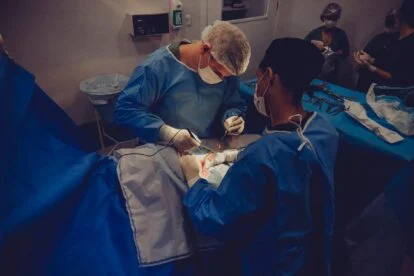
The man had a history of prostate cancer and had undergone a cystectomy, a procedure to remove his urinary bladder, just 15 days before the incident.
He was in the recovery phase, with his doctors recently informing him that his wound was healing well enough to remove the staples. Unfortunately, this progress was abruptly interrupted.
The Forceful Sneeze

During breakfast, the man sneezed with such force that it caused immediate pain and a wet sensation in his lower abdomen.
When he looked down, he saw several loops of his intestines protruding from his recent surgical site. This unexpected and painful experience left him and his wife in a state of shock and concern.
Immediate Reaction and Response

The man quickly covered the exposed intestines with his shirt. Despite considering driving himself to the hospital, he wisely decided to call an ambulance instead.
Paramedics arrived promptly, covered the wound with a pad, administered pain relief, and rushed him to a nearby hospital for urgent medical care.
Hospital Arrival and Assessment
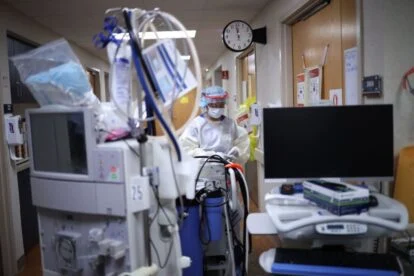
At the hospital, medical staff assessed the man’s condition. Surprisingly, his vital signs were within normal limits, indicating no immediate life-threatening issues.
This allowed the surgical team to focus on addressing the protruding intestines and preventing further complications from the wound dehiscence.
Surgical Intervention
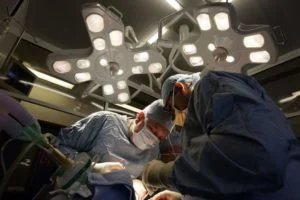
Three skilled urologic surgeons carefully worked to reduce the eviscerated bowel back into the abdominal cavity. They thoroughly inspected the small intestine for any signs of injury or damage and found none.
This meticulous process ensured that the man’s intestines were safely repositioned without additional harm.
Understanding Wound Dehiscence
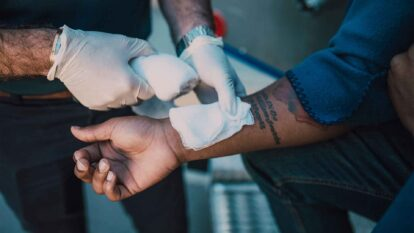
Wound dehiscence, the bursting open of a surgical wound, is a known complication but rarely results in evisceration through an abdominal surgical site.
This case is particularly noteworthy because such severe outcomes following a cystectomy are poorly described in medical literature. It emphasizes the need for awareness of potential risks during postoperative recovery.
Importance of Postoperative Care
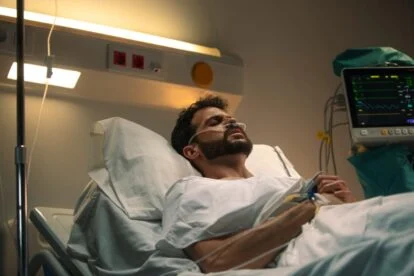
This incident shows the importance of careful monitoring and management during the recovery period after major surgeries. Even when healing appears to be progressing well, unexpected complications (put lightly) can arise.
Patients and healthcare providers must remain vigilant and prepared to address such emergencies promptly.
Medical Literature Contribution

The case, published in the American Journal of Medical Case Reports, adds valuable insights to the medical community.
It helps fill gaps in the understanding of wound dehiscence and evisceration, providing a detailed account of a rare but serious postoperative complication.
Quotes from the Case Study

The case study highlights the man’s experience, stating, “During breakfast, the man sneezed forcefully, followed by coughing. He immediately noticed a ‘wet’ sensation and pain in his lower abdomen.”
“Looking down,” the report continues, “he observed several loops of pink bowel protruding from his recent surgical site.”
Patient Outcome and Recovery
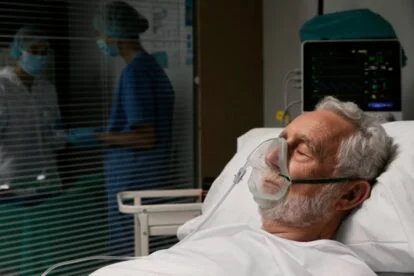
Despite the dramatic and painful experience, the man’s outcome was favorable. The timely surgical intervention and the absence of intestinal injury meant he could continue his recovery without further complications.
This case serves as a reminder of the body’s resilience and the importance of prompt medical attention.
Raising Awareness

Even when everything goes smoothly, it’s important to be aware of the potential risks and complications associated with major surgeries.
Patients should always follow their healthcare provider’s advice during recovery and seek immediate medical help if they experience unusual symptoms. This knowledge can help others avoid similar emergencies in the future.








































